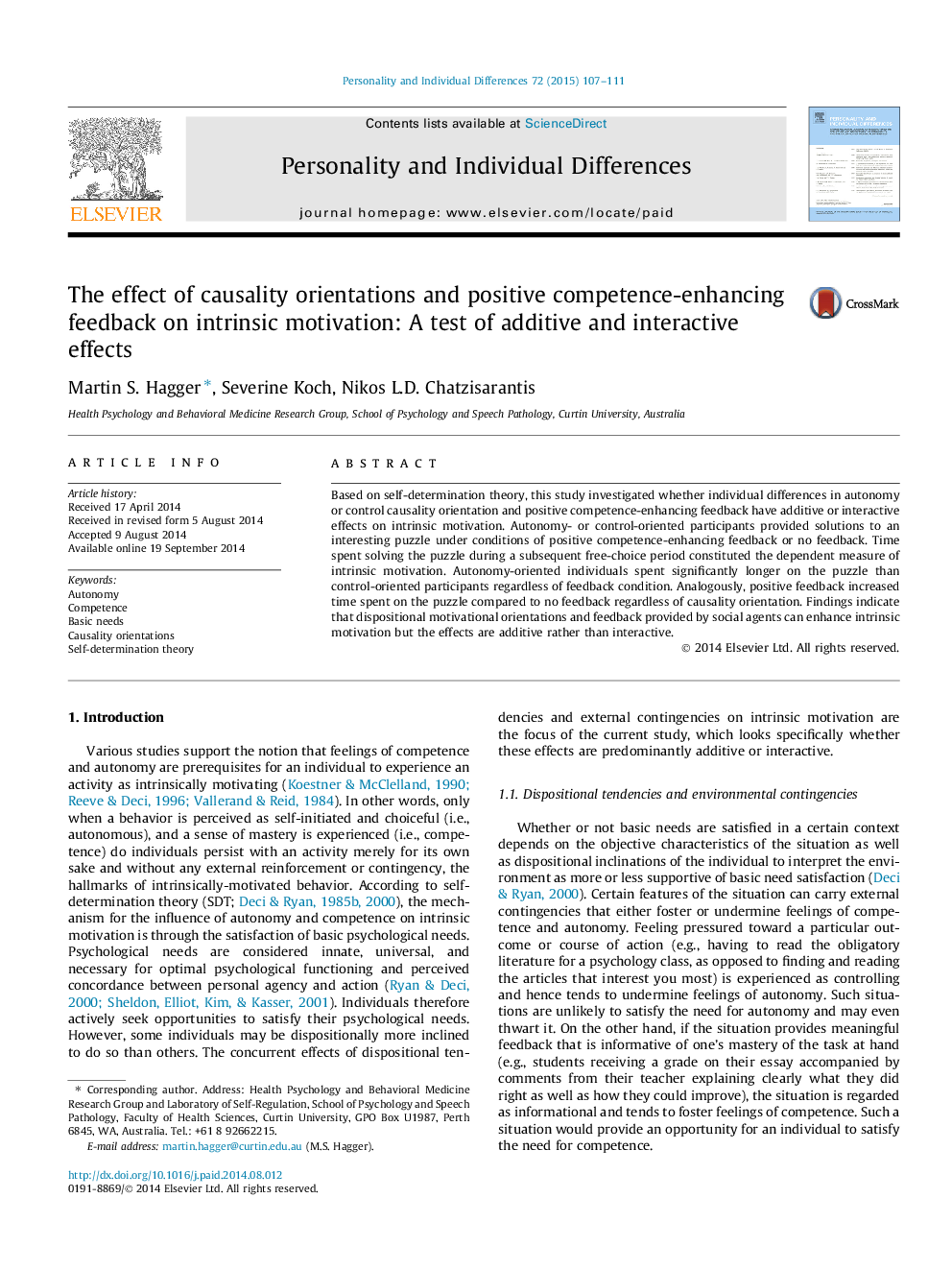| Article ID | Journal | Published Year | Pages | File Type |
|---|---|---|---|---|
| 7252100 | Personality and Individual Differences | 2015 | 5 Pages |
Abstract
Based on self-determination theory, this study investigated whether individual differences in autonomy or control causality orientation and positive competence-enhancing feedback have additive or interactive effects on intrinsic motivation. Autonomy- or control-oriented participants provided solutions to an interesting puzzle under conditions of positive competence-enhancing feedback or no feedback. Time spent solving the puzzle during a subsequent free-choice period constituted the dependent measure of intrinsic motivation. Autonomy-oriented individuals spent significantly longer on the puzzle than control-oriented participants regardless of feedback condition. Analogously, positive feedback increased time spent on the puzzle compared to no feedback regardless of causality orientation. Findings indicate that dispositional motivational orientations and feedback provided by social agents can enhance intrinsic motivation but the effects are additive rather than interactive.
Related Topics
Life Sciences
Neuroscience
Behavioral Neuroscience
Authors
Martin S. Hagger, Severine Koch, Nikos L.D. Chatzisarantis,
